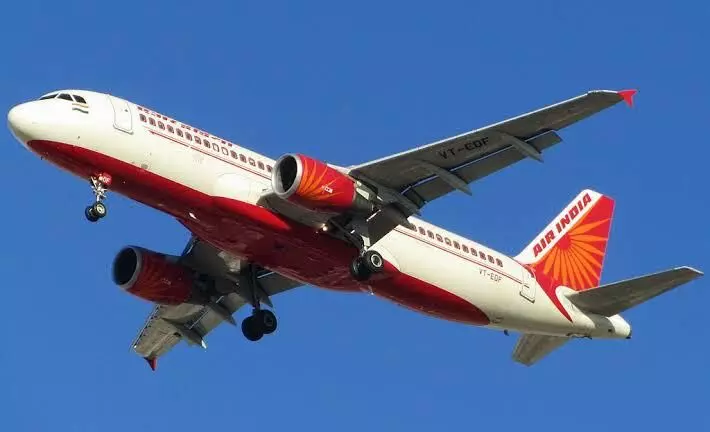Maharaja's renaissance: Air India places order for 250 most advanced Airbuses
Air India will also rely on Airbus for fleet availability through the use of Satair's Integrated Materials Solutions (IMS)
By Newsmeter Network
Hyderabad: Air India has signed an agreement to buy 250 Airbuses in a bid to fuel the airline's transformation.
The purchase includes 140 single-aisle A320neo and 70 A321neo aircraft, as well as 34 A350-1000 and six A350-900 wide-body jets.
In February 2023, the airline signed a Letter of Intent to purchase these aircraft.
Air India will also rely on Airbus for fleet availability through the use of Satair's Integrated Materials Solutions (IMS). Airbus-powered maintenance system will guarantee that if the airline needs a rotatable or consumable item, it is easily available and that stock levels are automatically refilled.
Air India will also be the first client to use Airbus' Skywise Core X3, the most advanced aviation analytics platform, as part of its transformation and digitization journey. This once again showcases Airbus and Air India's cutting-edge collaboration.
N. Chandrasekaran, Chairman of Tata Sons and Air India, Campbell Wilson, CEO & MD of Air India, Guillaume Faury, Airbus CEO, Christian Scherer, Airbus Chief Commercial Officer and Head of International, and Rémi Maillard, President and Managing Director, Airbus India, and South Asia signed the aircraft purchase agreements and Letters of Intent for maintenance and digital services at Paris Air Show 2023.
"Our ambitious fleet renewal and expansion program will see Air India operate the most advanced and fuel-efficient aircraft across our route network within five years. We are honored to be working with all of our partners, including Airbus, to construct a global airline that reflects India's more confident stance across the world," stated Campbell Wilson, CEO, and MD of Air India.
"We are thrilled to be a key partner in the Flying Maharaja's renaissance. This is one of the most ambitious undertakings in the aviation industry today, led by the Tata Group and focused on new management. We are happy that the economies, comfort, and range capabilities afforded by our next-generation aircraft will help Air India restore its rightful place as a world-class premium carrier. The Airbus services package is an excellent future-oriented choice that will be a key component of Air India's transformation," said Christian Scherer, Airbus Chief Commercial Officer and Head of International.
The historic Air India deal marks the A350's first flight in India, the world's fastest-expanding aviation market. The all-new, long-range aircraft will help unleash the untapped potential of India's long-haul industry by allowing new routes and customer experiences with improved economics and increased sustainability.
Along with the A350s, the A320 Family fleets will be an efficient and adaptable asset in continuing to democratize and decarbonize air transport in India - from domestic to regional to international levels. The first A350-900 is scheduled to be delivered before the end of 2023.
About the A350
The A350 is the world's most contemporary and efficient 300-410 seater wide-body aircraft. The A350's clean sheet design incorporates cutting-edge technology and aerodynamics to achieve unrivaled levels of economy and comfort. When compared to previous generation rival aircraft, its new generation engines and usage of lightweight materials provide a 25% advantage in fuel burn, operational expenses, and carbon dioxide (CO2) emissions.
The aircraft has a three-class layout cabin that is the quietest of any twin-aisle aircraft and provides passengers and staff with the most contemporary in-flight items for the most pleasant long-distance flying experience.
The A321neo is the longest-fuselage member of Airbus' best-selling, single-aisle A320 Family, comfortably accommodating 180 to 220 people in a standard two-class configuration and up to 244 in a higher-density configuration.
The A320neo has already established itself as the world's most comfortable short-to-medium-haul aircraft, with a usual seating capacity of 140 to 170 people and a maximum capacity of 180 passengers.
When compared to previous-generation aircraft, its environmental performance allows for at least 20% reduced fuel consumption and CO2 emissions, as well as a 50% reduction in noise footprint.